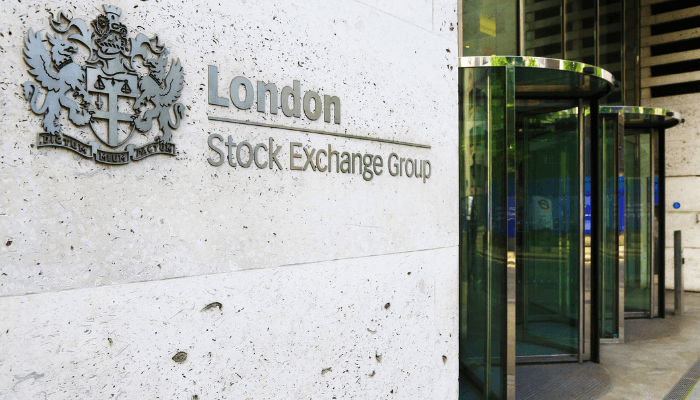African companies are increasingly turning to the London Stock Exchange (LSE) as their preferred platform for raising capital, joining a growing roster that now totals 117 listings, compared with just seven on the New York Stock Exchange.
The trend underscores London’s dominance as a global hub for African corporates and highlights the strategic choices firms make to access deep pools of international investors.
Speaking at the 2025 NBCC Meet the Governor series on September 18, British Deputy High Commissioner John Baxter highlighted the scale of the opportunity.
“The London Stock Exchange hosts more African businesses than any other exchange in the world, by a long, long way. To put some numbers to that, the London Stock Exchange has 117 listings for African firms. New York Stock Exchange? Seven. 117 to 7. That’s a really powerful figure,” he said, emphasising the gulf in investor exposure between London and other global markets.
Read also: GTCO to become first Nigerian bank listed on London Stock Exchange
For Nigerian companies, London offers more than capital; it provides credibility, visibility, and access to institutional investors already familiar with emerging-market risk. Listing frameworks and disclosure standards recognised across Europe and North America make London particularly attractive for firms with ambitions beyond the continent.
Baxter added, “Companies that want to list internationally, list globally, go to London. You’re moving into a market that already understands Africa, is already exposed to African businesses, and that’s a real positive.”
The benefits of London listings are already evident in high-profile Nigerian corporates. Seplat Energy’s dual listing in Lagos and London in 2014 raised $535 million, marking the first time a Nigerian company listed ordinary shares on both exchanges.
Airtel Africa’s 2019 IPO in London raised approximately $750 million, while Guaranty Trust Holding Company Plc’s dual listing in July 2025 raised $105 million, making it the first financial institution in West Africa to simultaneously list on both the Nigerian Exchange (NGX) and LSE.
London’s pull extends beyond established corporates to a new generation of Nigerian fintechs and startups. Firms such as Kuda, Moniepoint, LemFi, and GiniVest are establishing a presence in the UK to access capital, build regulatory credibility, and position themselves for international expansion.
Baxter said, “All Nigerian creative, Nigerian-run, brilliant companies want to come to the UK. What they’re going for is access to financial services, to money, to capital, and access to regulation. Those two things open up their businesses to make them truly international.”
Read also: London Stock Exchange Group sells 4.92% stake in Euroclear for €455m
The 117 African firms on London’s markets span multiple sectors and regions. In Nigeria and across West Africa, major names include Airtel Africa, Guaranty Trust Holding Company Plc, Seplat Energy Plc, Savannah Energy Plc, Africa Finance Corporation, and Helios Towers Plc.
South African financial and mining groups such as Investec Plc, Old Mutual Ltd, Ninety One Plc, Thungela Resources Plc, Pan African Resources Plc, Caledonia Mining Corporation Plc, and Premier African Minerals Ltd maintain a strong presence. North African firms, often listed through Global Depositary Receipts (GDRs), include Telecom Egypt, Commercial International Bank, Ezz Steel, Bank of Africa, EFG Hermes, and Orascom Construction.
London also hosts a broad spectrum of AIM-listed small-cap miners and explorers operating in Zimbabwe, Zambia, Tanzania, Ghana, Mali, and Namibia, demonstrating the city’s flexibility in accommodating both blue-chip corporates and niche, high-growth ventures.
The decision to list in London is not purely about raising funds. Companies gain global visibility, regulatory credibility, and a platform for mergers, acquisitions, and partnership deals. Dual listings allow firms to retain domestic exposure while tapping international liquidity.
London’s governance standards and transparent environment offer reassurance to investors, a notable contrast to domestic exchanges such as NGX, where liquidity remains limited and foreign participation subdued despite recent improvements in turnover and market capitalization.
Read also: GTCO surges to N122 per share on London Stock Exchange
Industrial heavyweights are closely monitoring the trend. Dangote Industries has long indicated a potential dual listing for its $20 billion refinery complex, which would further entrench London as the destination of choice for Nigerian capital raisings.
For policymakers, the movement of capital offshore validates private-sector strength but also signals a need to deepen local markets to capture more value at home.
London’s 117 African listings reflect a diverse ecosystem encompassing banking, telecoms, energy, mining, infrastructure, fintech, and investment funds. The concentration of established and emerging issuers creates a critical mass that attracts global investors and reassures newcomers.
For Nigerian and African companies, the exchange is not merely a fundraising venue, but a strategic platform for internationalisation, credibility, and integration into a community of global investors already attuned to Africa’s growth story.

